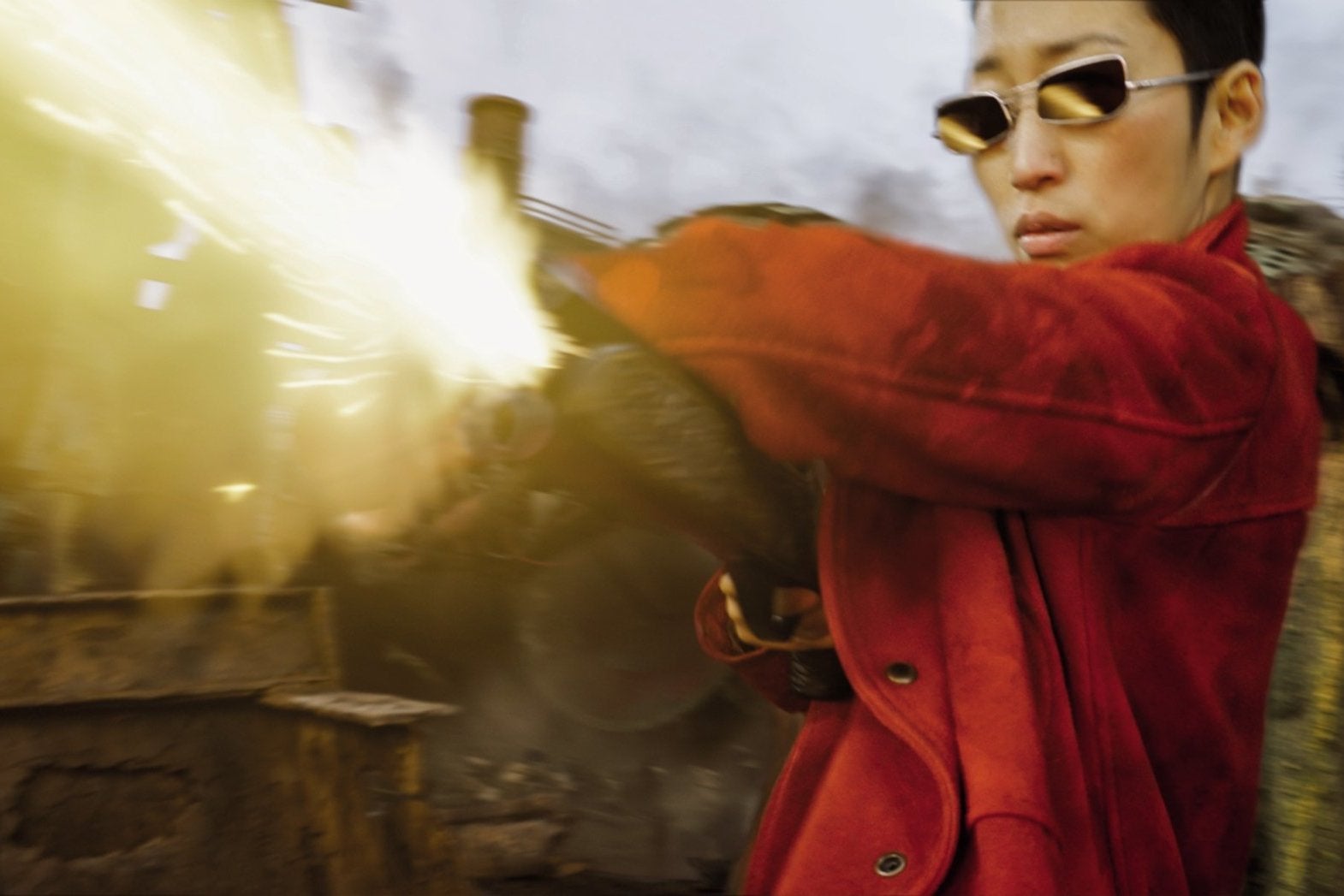Mortal Engines review: A better adaptation than The Golden Compass but overstuffed with detail
The first book in Philip Reeve’s fantasy quartet, directed by Peter Jackson protege Christian Rivers, is struggling to do justice to its many concepts
Your support helps us to tell the story
From reproductive rights to climate change to Big Tech, The Independent is on the ground when the story is developing. Whether it's investigating the financials of Elon Musk's pro-Trump PAC or producing our latest documentary, 'The A Word', which shines a light on the American women fighting for reproductive rights, we know how important it is to parse out the facts from the messaging.
At such a critical moment in US history, we need reporters on the ground. Your donation allows us to keep sending journalists to speak to both sides of the story.
The Independent is trusted by Americans across the entire political spectrum. And unlike many other quality news outlets, we choose not to lock Americans out of our reporting and analysis with paywalls. We believe quality journalism should be available to everyone, paid for by those who can afford it.
Your support makes all the difference.Dir; Christian Rivers; Starring: Hugo Weaving, Hera Hilmar, Robert Sheehan, Jihae, Stephen Lang. Cert 12A, 128 mins
Mortal Engines, an adaptation of the first of a quartet of fantasy books by Philip Reeve, has been heavily framed in its publicity as the latest brainchild of filmmaking wizard Peter Jackson. It’s a small twist of the truth: it’s actually the directorial debut of his protégé Christian Rivers, who has worked closely with Jackson since 1992’s Braindead.
Rivers, however, has learnt much from his master and, arguably, Mortal Engines could be described as coming from the “school of Peter Jackson”, in the same way a painting may be attributed to the “workshop of Rubens”. The foundations are the same: it’s a vast, densely mythologised world serving as a metaphor for our own, populated by characters of different backgrounds and allegiances, who must come together to battle the evils of mankind’s machinery. So far, so Lord of the Rings.
However, Mortal Engines is of the dystopian genre, and its post-apocalyptic world has seen London turn carnivorous. More precisely, it’s now a vast city motorised on wheels, driving across barren landscapes in search of smaller cities to devour and dismantle for resources.
We follow Hester (Hera Hilmar), an outcast orphan on the warpath, poised to assassinate the man who murdered her parents, Thaddeus Valentine (Hugo Weaving), before she’s interrupted by one of his loyal admirers, Tom (Robert Sheehan). After both Hester and Tom are thrown out of the city, their journey back sees Tom – who believes cities-devouring-cities equates to civilising – learn some hard truths about the world.
Taking into account the standard process of Hollywoodisation (Hester’s facial scarring is much less severe, for example), it’s admirable that Mortal Engines hasn’t downplayed the book’s anti-imperialist themes. In a manner that’s bound to have one red-faced corner of the internet screaming about “social justice warriors”, London (and the British Empire it represents) is the villain here.
It’s a city of gloomy steampunk fashions, mixed with the cold luxury of The Capitol from The Hunger Games, on an endless course of greed and destruction. The heroes, meanwhile, are the Anti-Traction League, a multicultural unit that emphasises cooperation and mutual respect, with a base in the idyllic Shan Guo.
However, Reeves’s book is a dense one when it comes to world building, and Mortal Engines does little to streamline or simplify it for the big screen. Key terms like “The Sixty-Minute War” and “Municipal Darwinism” drop like a ton of bricks on the film’s dialogue. Other moments feel unnecessary in their detail, including the lengthy flashbacks explaining Hester’s past with Shrike, an undead soldier fused with machine parts – think zombie Terminator.
These ideas aren’t lacking in imagination, but the film simply can’t handle so many vastly different concepts, especially as it attempts to give each its fair due. That’s without even attempting to explain how it manages to sneak in a reference to Minions.
Thanks to its script, written by Lord of the Rings trio Jackson, Philippa Boyens, and Fran Walsh, Mortal Engines is character-driven enough not to feel like empty blockbuster fluff, if only the noise of this universe didn’t swallow up this cast of relative newcomers (outside of veterans Weaving and Lang).
There is one notable exception: South Korean-born musician Jihae, who makes her film acting debut as Anna Fang, who stalks around in a bright red coat wielding a shotgun, dealing out one-liners as much as she does bullets. Nonchalant and elegant like you dream all good revolutionary leaders to be, Anna Fang is impossible not to love, thanks to Jihae’s charismatic performance.

The first Mortal Engines book arrived during a boom of teen fantasy novels that wrapped heavy metaphors in the folds of vast, intricate new worlds, sparked partially by the success of Philip Pullman’s His Dark Materials trilogy. The first book in that series, Northern Lights (or The Golden Compass in the US), received its own cinematic adaptation in 2007.
However, while that version whittled down the novel to a soulless husk, Mortal Engines has made the nobler attempt here. Yet, in staying so faithful to Reeve’s world, it soon becomes too heavy a load to bear.
Mortal Engines will be released in UK cinemas on 14 December

Join our commenting forum
Join thought-provoking conversations, follow other Independent readers and see their replies
Comments